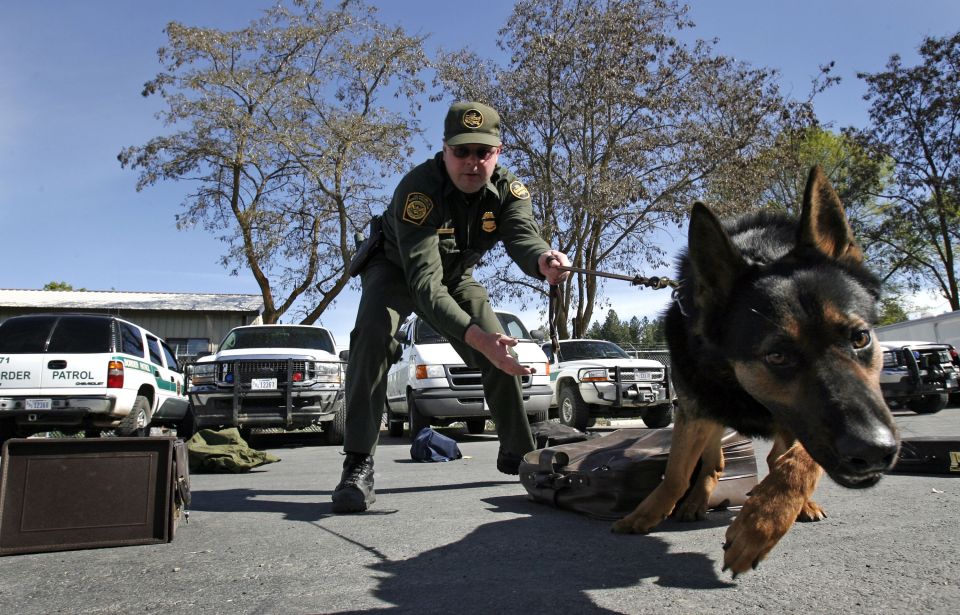- On March 13, 1942, the United States Army’s Quartermaster Corps (QMC) begins training dogs for the newly established War Dog Program, or “K-9 Corps.”
More than a million dogs served on both sides during World War I, carrying messages along the complex network of trenches and providing a measure of psychological comfort to soldiers.
The most famous dog to come out of the war was Rin Tin Tin, an abandoned German war dog pup found in France in 1918 and brought to the United States, where he made his film debut in the 1922 silent film Man from the River. from hell”.
As the first bona fide animal movie star, Rin Tin Tin made the little-known breed of German Shepherd famous across the country.
In the United States, the practice of training dogs for military purposes was largely abandoned after World War I.
When the country entered World War II in December 1941, the American Kennel Association and a group called Dogs for Defense started a movement to mobilize dog owners to donate healthy and capable animals to the US Army Quartermaster Corps. .USA
Training began in March 1942, and that fall he was also tasked with training dogs for the US Navy, Marine Corps, and Coast Guard.
The K-9 Corps initially accepted more than 30 dog breeds, but the list was soon narrowed down to seven: German Shepherds, Belgian Sheepdogs, Doberman Pinschers, Collies, Siberian Huskies, Malumutes and Huskies.
Members of the K-9 Corps were trained for a total of 8 to 12 weeks. After basic obedience training, they were sent through one of four specialized programs to prepare them to work as sentinel dogs, scout or patrol dogs, messenger dogs, or mine detection dogs.
In active combat service, scout dogs proved especially essential in alerting patrols to enemy approaches and preventing surprise attacks.
The main canine hero of World War II was Chips, a German Shepherd who served in the Army’s 3rd Infantry Division. Trained as a sentry dog, Chips parted ways with his masters and attacked an enemy machine gun nest in Italy, forcing the entire crew to surrender.
Wounded Chips was awarded the Distinguished Service Cross, Silver Star, and Purple Heart, all of which were later revoked due to an Army policy that prevented official commendation of the animals.

